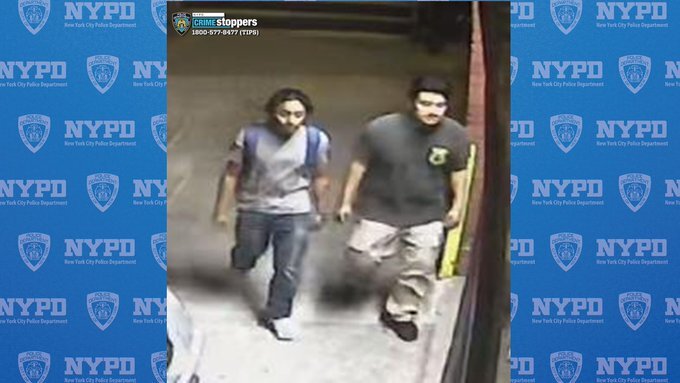Deny Parole For Byrne’s Murderers
Sen. Charles E. Schumer called for the denial of parole to the four killers of P.O. Edward Byrne of the NYPD, who was assassinated while on patrol in South Jamaica in 1988.

The infamous case, in which the four men assassinated Byrne while he was sitting in his patrol car protecting a local citizen’s house who feared retribution local drug gangs, shocked the nation and sparked a country-wide move towards more cops on the beat and tougher anticrime laws.
The four men were all convicted and received 25 years to life, and all are now up for parole. Schumer urged the parole board to deny freedom to these four men each and every time they come before the board for a hearing.
“This cold-blooded, pre-meditated assassination of a law enforcement officer-young NYPD Police Officer Edward Byrne-who was protecting a witness against a drug kingpin, shocked the nation’s conscious, and all those who perpetrated and planned this crime should never see freedom again,” said Schumer. “We live in a nation of consequences and justice, and to allow these murderers out of prison would undermine both. To grant them even the hope of freedom would be a slap in the face to those who keep our streets safe every day, and would dishonor the memory of this heroic officer. I hope and pray that the parole board will listen to our plea today and keep those jail cells locked for good.”
“The assassination of my brother Eddie was a terrible crime and a terrible tragedy,” said Larry Byrne, brother of Edward Byrne. “In order to protect our city and all police officers in the future these four convicted murderers should never be granted parole.”
In the early morning hours of Feb. 26, 1988, the four killers assassinated rookie Officer Byrne while he was on duty in a marked police car. Todd Scott distracted Byrne on the passenger side of the police car while David McClary shot the officer five times in the head at point blank range.
Scott Cobb drove McClary and Todd Scott to execute Officer Byrne and picked them up to escape after Byrne was shot. Philip Copeland directed the entire assassination plan and Copeland received the order from a jailed drug dealer, Howard “Pappy” Mason, to kill a cop. Mason had been sent back to New York State prison earlier in February 1988.
Using the telephone from his New York State prison, Mason ordered that an officer be killed to send a message to the police that because he was sent back to jail, he and his violent drug gang would retaliate by killing a officer.
At the time that Officer Byrne was shot, he was on duty in a fixed post in the 103rd Precinct in South Jamaica. Officer Byrne was working the midnight to 8 a.m. shift guarding the home of a Guyanese immigrant named Arjune.
Arjune had previously called the police several times about drug dealers in his neighborhood and had agreed to testify against them. As a result, he and his family were repeatedly threatened and his home was firebombed prior to the night Officer Byrne was assassinated.
To protect Arjune and his family, the NYPD established around the clock protection outside of his home with a marked police car manned by one police officer at all times. When the Copeland, McClary, Scott and Cobb agreed to murder a NYC Police Officer for defendant Mason they knew that a single Police Officer would be sitting alone in a marked police car on the night that they assassinated Officer Byrne.
“The murder of Police Officer Edward Byrne occurred during the darkest days of New York City’s monumental struggle against crime, social disintegration and disorder, when the forces of darkness were attempting to assert an upper hand,” Schumer said. “This wasn’t just a callous, pre-meditated murder, which in and of itself was so horrible that parole should be flatly denied. It was a brazen attempt to terrorize both the decent, hard-working people who are the backbone of New York City’s neighborhoods and the brave men and women in the law enforcement community who put their lives on the line to protect them.
In a letter to the Parole Board, Schumer urged the Board to deny freedom for McClary, Cobb, Scott, and Copeland when they come before the board this fall and every time in the future. Schumer said that it was crucial to continue to signal that committing such a horrendous crime in the State of NewYork will ensure the maximum sentence.
As a result of this crime, the federal Byrne Justice Assistance Grants program was created to provide money to local police departments to ensure that police have all the necessary tools in the fight against crime. Schumer helped write the bill that named this invaluable program after officer Byrne.
This money has allowed localities and states to hire more police officers and explore innovative programs. New York has especially benefited from Byrne JAG funds in the past as a supplement to local municipalities hurt by the declining economy.

































